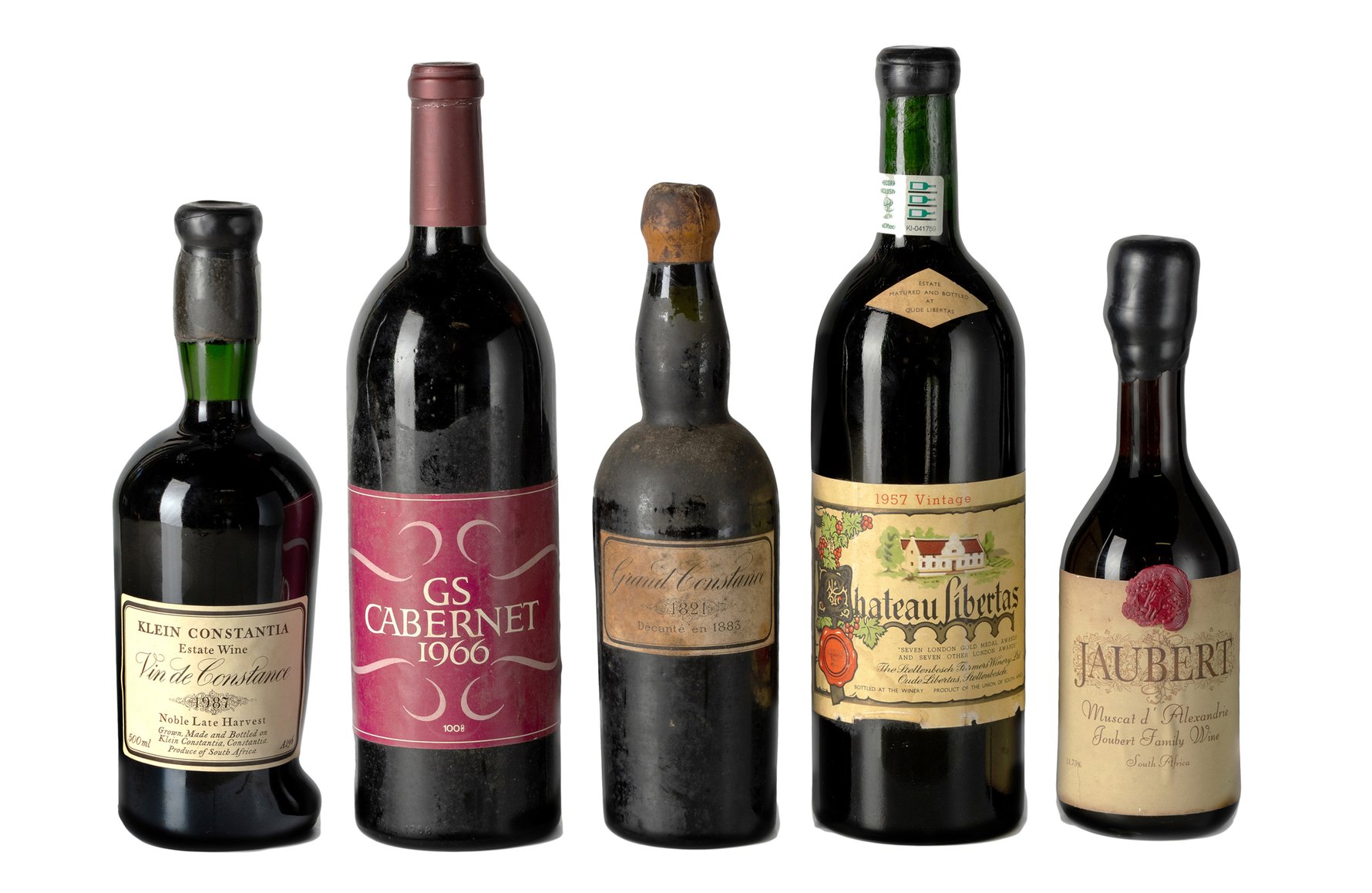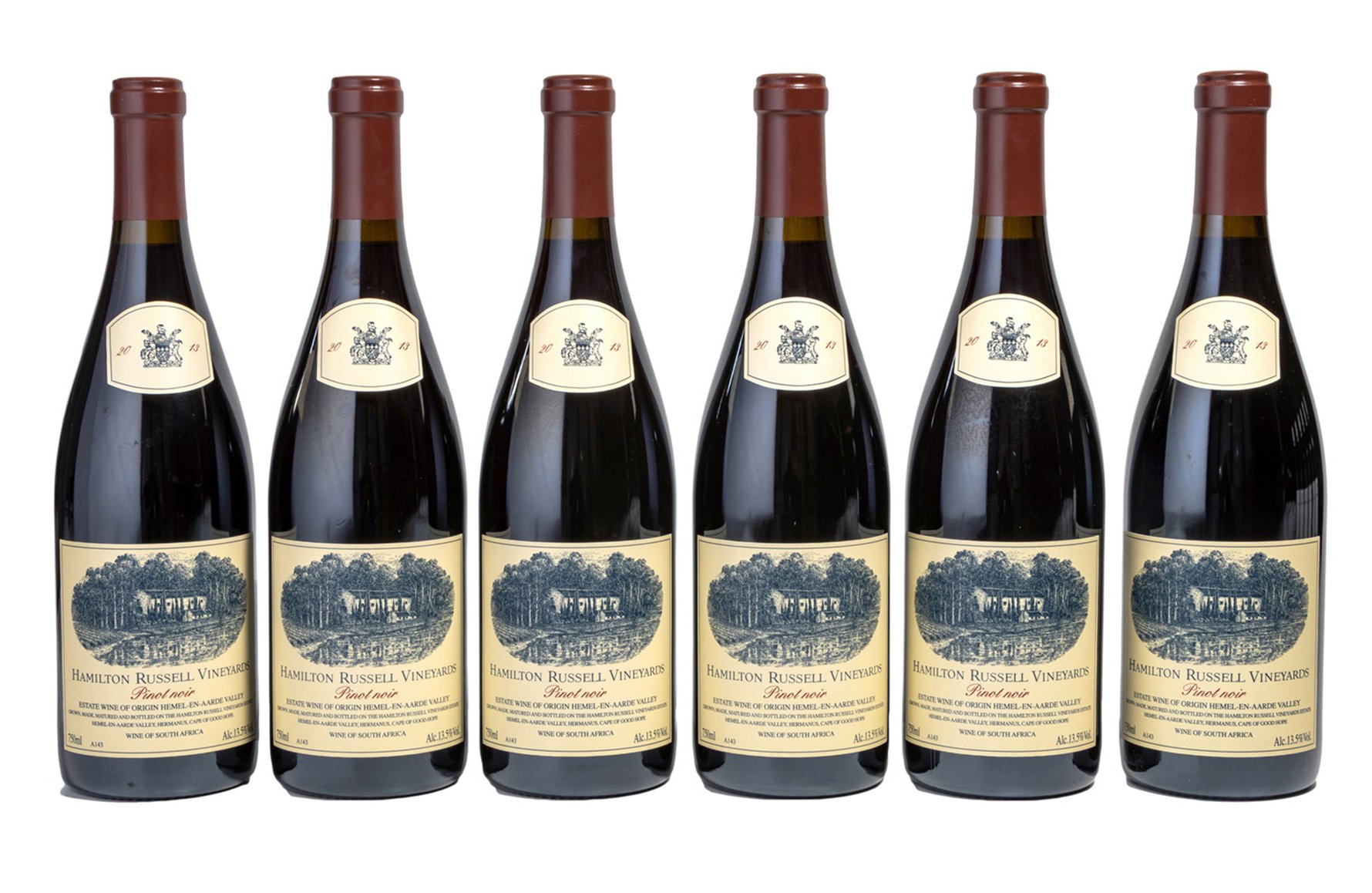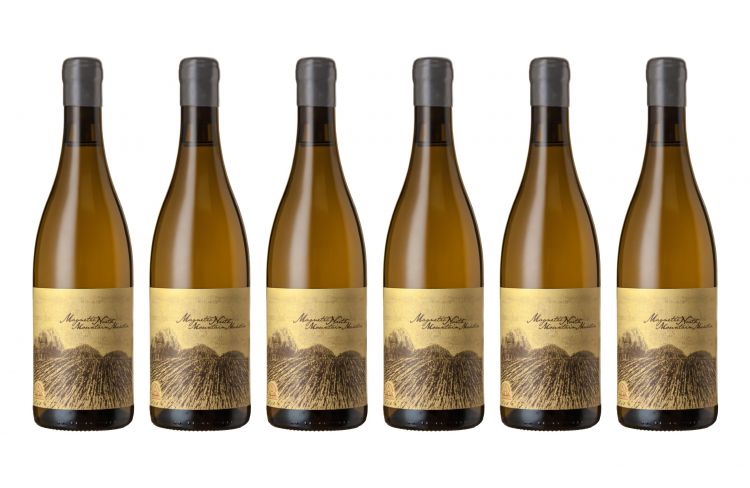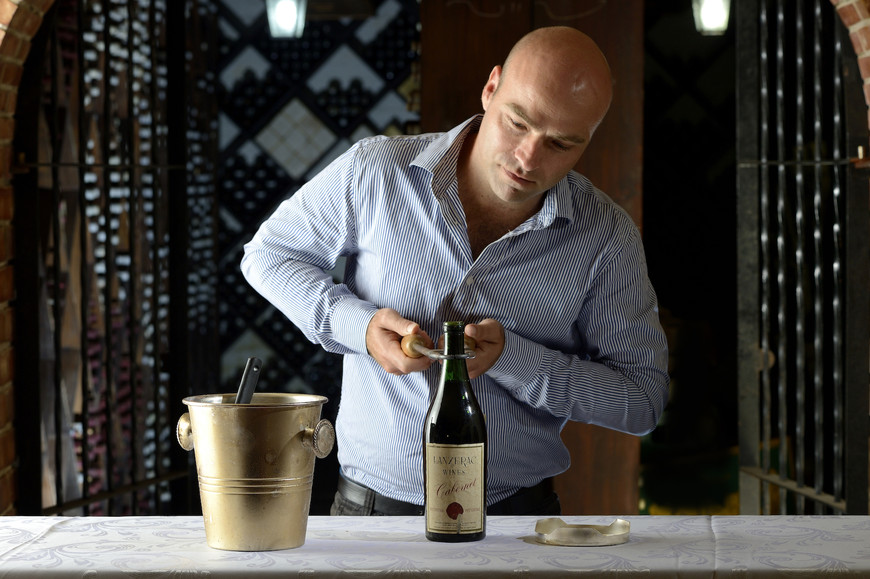Top art auction house Strauss & Co's trailblazing fine wine auctions have proven a hit with South African wine lovers stacked with rare and covetable local wines. We talked to top wine merchant Higgo Jacobs about collecting SA fine wines.
Launched in 2019, Strauss & Co's fine wine auctions are the first of their kind in the country. Leading the Strauss Fine Wine partnership is foremost South African wine merchant and sommelier Higgo Jacobs who is also a senior judge at the International Wine Challenge (IWC) and Decanter World Wine Awards. He's also a founding member and past chairman of the South African Sommelier Association, as well as Director of By-Laws for the ASI (Association de le Sommellerie Internationale), the international regulatory body for the sommelier profession.
What brought you into the wine sales world?For as long as I have been able to earn a wage I have done wine jobs – first with Port cellars during school holidays in Calitzdorp, then for various willing Stellenbosch producers during law studies at University. I eventually settled for permanent employment after realising the sabbatical had become a way of life.
In 2019, together with Strauss & Co, you launched fine wine auctions in South Africa. How has this changed the wine business?
There are many positive forces at play at the high end of fine South African wine at present. That is why our timing was so important – to launch this platform. Our venture is based on the optimism that South African wine is undervalued. The auctions have only been going for almost three years now, so I think it would be brash to talk about them having had a wide industry impact at this stage. Ours is a long-term strategy that involves educating the market and building fine wine culture as much as it is a commercial strategy to build a secondary market for fine SA wine. I would say that we are contributing to the collective in realising the value in South Africa’s best wines.

When we started we followed the principle of other existing wine auctions to stage an event and sell a large consignment of wine, hoping to impact the industry and raise awareness. What we quickly learned is that an ongoing, accessible, focused platform is preferred by the market. We launched well-curated, specialised and themed auctions in 2020 with the functionality of live online sales, which at the advent of Covid 19 lockdowns and increased online commercial activity were received incredibly well.
"First rule is to buy what you enjoy. This means that you won’t be unhappy with your purchase regardless of what happens in value of the investment."
What are the key trends in the wine auction space?
Buyers prefer younger vintages of small volume wines that are no longer available in the market, as opposed to rare old (20 years-plus) wines. There is probably a lack of belief in older wine, legitimately due to variable quality and often questionable storage in historic offerings. Part of our goal is to build this category by selling the correct wines and showcasing the brilliance of good historic vintages. But for now, the trend is certainly with the attractive younger wines that are contributing to shaping the quality story internationally. We have also successfully sold some of the most sought-after international wines on auctions. With the immature local market for these wines and favourable currency, these wines are selling below international market standards and often represent great buys.
How do you see the wine auction scene evolving in the future?
I think more of the same. I’m upbeat about the future of fine wine in South Africa, and I strongly believe that with the developments in viticulture the best is yet to come. This means that we are confident in the product and in the supply. There will probably be more players in the market, but I doubt any will match us on focus and expertise. We will increasingly look to take Strauss & Co Fine Wine Auctions to global audiences, and unlock new markets.

The vast majority of buyers are still local clients. We have started to attract attention from international buyers and the online accessibility has certainly contributed to this. However, wine buyers are fickle and it takes time to build trust and awareness, which is what we aim to do with various PR strategies. Online helps, but the real impact will come with strategic physical auctions in first world markets.
Do you think there are varying interests between local and international buyers when it comes to the selection of wines that go on sale?
Yes, probably. Due to our competitive prices on international icon wines, we may find that savvy foreign collectors find the prices attractive here. But generally we are seeing a healthy spread of interests across both local and foreign buyers.
"Many of the best wines of the world are practically sold out on release and hard to come by. As the perception of the joy that these wines bring grows, so does the curiosity to try them."
If someone has never bought wine before at an auction, how would you advise them?
First rule is to buy what you enjoy. This means that you won’t be unhappy with your purchase regardless of what happens in value of the investment. Read up on prominent critic notes and reports and find a space in the market where you’re comfortable with the information and with what you spend. Then, most importantly, after purchase make sure that you store the wines correctly. If you don’t have a suitable cellar at home, rather store them professionally.

When wines come in to be consigned to an auction, how do you assess their condition and what they might taste like?
There are plenty of useful indicators that show condition of a wine – ullage (space between cork and liquid), signs of leakage, cork position and wine colour. Also looking at the conditions where the wines were stored. But the only certain way is to pull corks. When new cellars come up for consignment we always taste.
What do you think motivates fine wine collectors? Are people buying for investment purposes or do they more often bid for wines that they would like to drink?
The majority buy to drink, and we certainly encourage that. The convenience of having curated and vetted selections of fine wine is an attractive proposition for enthusiasts and oenophiles who are serious about enjoying the finer things in life, and don’t have the time to distinguish the broader market offering. Many of the best wines of the world are practically sold out on release and hard to come by. As the perception of the joy that these wines bring grows, so does the curiosity to try them. On average we sell just above low estimate, so there are good buys to be had for investment purposes too.
We’ve seen some wines sell for incredible prices at recent auctions – what is it about certain bottles that give them this special value and make them so covetable?
Many factors. But the two most important factors at play are desirability and rarity. This creates that wonderful supply demand tension that auctioneers love. Rarity is fairly simple to ascertain – small production volumes, unavailability in the market etc. establish rarity. Desirability is less straightforward. This is driven by factors such as brand equity, critic ratings, provenance etc. It is most important to realise that serious wine auctions won’t sell wines just for their face value (as a collector’s piece), we will always vouch for the wine still being alive and delicious.
HOW TO BID IN A STRAUSS & CO AUCTION
Head to Strauss&Co's website. Register online through the "Register to Bid" link and complete the short form. This can be done from the moment the sale opens.Clicking on "Submit your Bid" brings up the bidding pop-up window, which features a “submit “button that allows you to accept the next bid value. Up to the last hour of the auction, if you have an active bid you will receive an email and an SMS when you are outbid on a lot. Successful buyers will receive an email after the sale has closed, detailing purchased lots and check-out procedures.





Comments